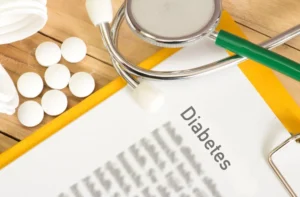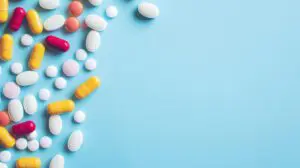Probiotics have become so prominent in our health consciousness that most people have heard of them and their potential benefits. These helpful organisms live throughout our bodies, in our gut, on our skin, in our mouth, and within our urogenital system. The most significant number is in our gut, where they consume parts of our food we cannot digest and, in return, create vitamins, fatty acids, and other compounds we need.
You might ask, “When should I take my probiotic to get the most out of it?” Many factors can impact the timing of taking a probiotic. Read on as we explore the answer to this question and others.
Best Time to Take Probiotics for Optimal Gut Health
Scientists have conducted extensive research on probiotics, with impressive results. Various studies have focused on how probiotics impact the gut, brain, skin, mood, major organs, and overall health. Scientists have concluded that there is a positive impact, but more research is needed to determine which microorganisms are most helpful for which conditions.
The largest number of studies have focused on how different probiotics impact the gut. The most studied microorganisms are various strains of Lactobacillus and Bifidobacterium. We’ll discuss these bacteria later in this article.
If you’re extremely busy, like most of us, it can be challenging to remember to take a supplement. The experts encourage consistent use and taking probiotics at the same time every day for the best results.
Should You Take Probiotics with Food or on an Empty Stomach?
Manufacturers and healthcare professionals differ on when to take probiotics.
Should probiotics be taken with food? One school of thought suggests that taking probiotics with a meal to buffer stomach acid helps protect the probiotics. In one study, non-enteric-coated probiotics taken 30 minutes before a meal or with a meal of oatmeal and 1% milk survived better than the probiotics given 30 minutes after a meal. The researchers believe that the fat in the milk helped the probiotics survive.
Should you take probiotics on an empty stomach? Another school of thought is that probiotics survive best on an empty stomach before breakfast because stomach acid is less acidic after not eating for hours.
Certain microorganisms such as Lactobacillus, Bifidobacterium, and Enterococci are more resistant to stomach acid and tend to survive more easily than others. The delivery method also makes a difference. Capsules, beads, tablets, and yogurt deliver live bacteria to the intestines more successfully, whereas powders and liquids are less successful.
The bottom line is consistency first. Take your probiotic when you will remember to take it regularly. If you want to experiment, try taking it at different times, with and without food, and see what works best for you.
Is It Better to Take Probiotics in the Morning or at Night?
The best time of day to take probiotics is when it’s most convenient, and you’ll remember to do it. If your lifestyle supports a morning routine, try that. If lunch is your best time, give that a try.
Most existing studies don’t consider the time of day, so there is not much evidence about which time of day is better. Some sources believe that taking a probiotic in the morning before breakfast or at night when the digestive system is less acidic can optimize the probiotics’ survival.
The experts say the best time to take probiotics is when you will take them consistently. However, each individual is unique, and each probiotic supplement works a little differently, so while you can take a probiotic at any time, understanding timing can help you reap the most benefits.
How Dietary Habits Affect Probiotic Effectiveness
Lifestyle changes can support your quest for better gut health. The Standard American Diet (SAD) is high in sugars, refined carbohydrates, unhealthy fats, and salt and low in fiber, healthy carbohydrates, and nutrients. This diet can begin to erode gut health because it does not provide fuel for friendly bacteria.
Dietary changes to a more natural way of eating support not only your overall health but the health of your gut. Probiotics consume certain types of fiber for fuel. These types of fiber are called prebiotics. They are the elements of foods we cannot digest, but when they reach the intestines, the microorganisms feed on them. Eating more fruits, vegetables, whole grains, and legumes for prebiotics, along with probiotic supplementation, supports gut biome health.
Can Probiotics Be Taken with Other Medications?
Since antibiotics kill pathogenic bacteria and also kill friendly microbes, doctors often recommend taking probiotics while taking antibiotics to help the gut bacteria recover. It’s best to take your probiotic several hours before or after an antibiotic to give the friendly bacteria the best chance for survival.
If you are taking medications, talk with your doctor about whether it is safe for you to take probiotics. If you have a chronic condition, have recently been hospitalized, or have had surgery, talk with a health practitioner before starting on a probiotic supplement.
Probiotic Strains: Finding the Right One for Your Health Needs
Scientists have performed many studies on probiotics and their effect on the body, finding benefits and positive impacts on various body systems. Most research studies conclude that while the study returned positive results, more research is needed to determine which microorganisms are best for specific conditions. However, certain strains have shown promise for particular conditions.
Research has shown that Lactobacillus can help treat or prevent diarrhea and other digestive issues, and Bifidobacteria can help with intestinal problems and support the immune system. Saccharomyces Boulardii has shown promise in treating diarrhea, other intestinal problems, and skin conditions. If you have questions about what probiotics to take, consult a health professional for recommendations.
How to Know If Your Probiotics Are Working
The best way to know if your probiotic is working is to note your symptoms before you start and monitor changes as you continue to take the supplement. Each person, each biome, and each lifestyle is different, so no two people respond the same way. There are several elements to think about when you take a probiotic.
If you have questions or are concerned about any changes – or lack of change – in your symptoms, it’s best to talk with a qualified health professional. They will be able to consider your lifestyle and symptoms to understand better whether a probiotic is for you and, if so, which probiotic to take.
Frequently Asked Questions
What should you not take with probiotics?
Experts recommend taking probiotics and antibiotics at different times of the day because antibiotics can kill probiotics if taken too close together.
Should you take probiotics with food?
Probiotics work with food or without, but you may get a better effect if you take your probiotics with particular foods. One study saw better bacteria survival rates if the subject ingested the probiotics with oatmeal and low-fat milk; water and apple juice did not have the same effect.
How to tell if probiotics are working?
You may see results from your probiotic supplement immediately, or it may be a few weeks before you notice a difference. You might notice that your bowel movements become more regular, you’re bloating less, you have more energy, or your mood has improved. These can all be signs that your probiotic is working.
Is there a downside to taking probiotics?
Doctors consider probiotics to be generally safe for human consumption. Most people have few side effects when they begin taking a probiotic, but some find that gas and bloating increase for a short time. If these symptoms persist beyond two weeks, it’s best to discontinue the supplement and talk to your doctor.
If you have a chronic health condition, have recently been hospitalized, or had surgery, it’s best to consult your doctor before taking a probiotic supplement.
Consistency Is Key: When to Take Probiotics for Best Results
How do you know when to take probiotics? As mentioned, consistency over time is the most important thing to remember since the effects of probiotics decrease if you stop. You may see results as soon as you begin taking probiotics, but it takes time for the microorganisms to establish themselves and for the body to heal. Check in with yourself regularly to evaluate your symptoms, especially after 2-3 months.
What Experts Say About the Best Time to Take Probiotics
The first thing expert after expert says is that the best time to take probiotics is when you’ll do it consistently. Regular use is more important than taking it at a particular time of day. Each person’s body is different, so experiment and see what works for you. For personalized advice, check in with a qualified health professional.
Dr. Ohhira’s probiotic supplements contain 13 probiotic strains to increase gut diversity and provide the positive effects of each of these friendly bacteria. We carefully select natural ingredients to “feed” the bacteria, culturing it for multiple years. This dedication to quality delivers a pure product that supports overall health and well-being. Contact us for more information or to order.





